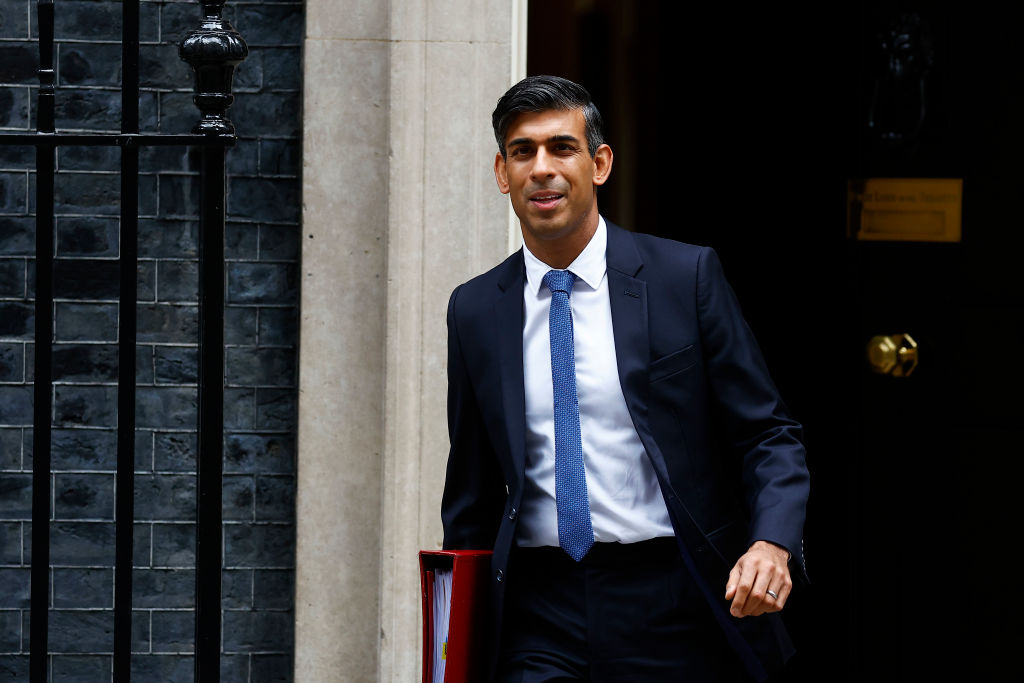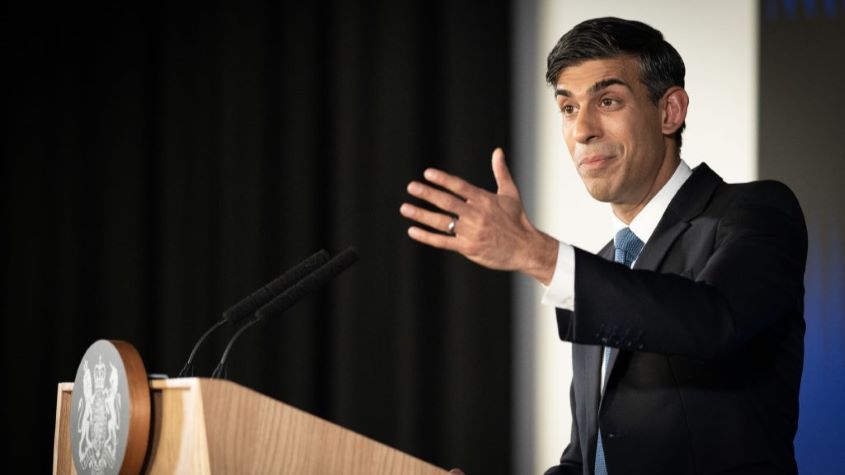Government considering cuts to inheritance tax, reports say
The Sunday Times reported government officials are considering cuts to inheritance tax ahead of the general election.


Get the latest financial news, insights and expert analysis from our award-winning MoneyWeek team, to help you understand what really matters when it comes to your finances.
You are now subscribed
Your newsletter sign-up was successful
Want to add more newsletters?

Twice daily
MoneyWeek
Get the latest financial news, insights and expert analysis from our award-winning MoneyWeek team, to help you understand what really matters when it comes to your finances.

Four times a week
Look After My Bills
Sign up to our free money-saving newsletter, filled with the latest news and expert advice to help you find the best tips and deals for managing your bills. Start saving today!
Prime Minister Rishi Sunak is reportedly drawing up plans to cut inheritance tax with the end goal of scrapping it altogether.
Under the plans, first reported by The Sunday Times, the most hated tax in Britain could be reduced from 40% as soon as the budget in March.
Number 10 has not confirmed speculation, but The Sunday Times said there were “live discussions at the highest level of government” about getting rid of the tax.
MoneyWeek
Subscribe to MoneyWeek today and get your first six magazine issues absolutely FREE

Sign up to Money Morning
Don't miss the latest investment and personal finances news, market analysis, plus money-saving tips with our free twice-daily newsletter
Don't miss the latest investment and personal finances news, market analysis, plus money-saving tips with our free twice-daily newsletter
But would slashing inheritance tax really prevent estates from being dragged into the IHT net?
How could the government cut IHT?
Under one of the reported proposals, the Government could announce it intends to phase the tax out by cutting the 40% tax rate in the budget in March while outlining how it will abolish it completely in the future.
But Downing Street insisted there were no formal plans to cut IHT, adding doing so was “virtually impossible” due to the state of the public finances.
“Politically, raising IHT thresholds – or even going a step further by abolishing the tax altogether – is likely to be appealing, particularly given we are closing in on a general election,” says Tom Selby, head of retirement policy at AJ Bell.
“However, IHT has been a reliable cash cow for the Exchequer, generating £2.38 billion in 2009/10 but rising to £6.1 billion last year.”
Who would IHT cuts benefit?
Inheritance tax receipts totalled £2.6bn between April and July in 2023, and HMRC is due to collect a record amount this year.
New research from Wealth Club suggests the average IHT bill could reach £233,000 in 2023/24, a 9% increase from the current IHT bill. It also expects a 12% rise in the number of estates paying tax.
But even so, “the overwhelming majority of people will not find their estates subject to IHT”, says Selby.
“In fact, just 1 in 25 households (4%) are expected to face an IHT bill, according to official estimates,” adds Selby. “However, the longer IHT allowances remain frozen at the current level, the more people will be dragged into paying tax on inherited assets on death.”
IHT is starting to affect increasing numbers of smaller estates, largely due to rising property prices. “So, possibly more welcome would be a hike in the nil-rate band,” says Ian Dyall, head of estate planning at Evelyn Partners. “This exempt allowance below which no IHT is paid has been frozen at £325k per person since April 2009 and would now be close to £500k had it risen with inflation.”
“Given the financial straitjacket wrapped round the chancellor at the moment, he is more likely to opt for a small increase in the IHT allowance than abolishing the tax altogether,” agrees Selby.
Get the latest financial news, insights and expert analysis from our award-winning MoneyWeek team, to help you understand what really matters when it comes to your finances.
Nic studied for a BA in journalism at Cardiff University, and has an MA in magazine journalism from City University. She has previously worked for MoneyWeek.
-
 Should you buy an active ETF?
Should you buy an active ETF?ETFs are often mischaracterised as passive products, but they can be a convenient way to add active management to your portfolio
-
 Power up your pension before 5 April – easy ways to save before the tax year end
Power up your pension before 5 April – easy ways to save before the tax year endWith the end of the tax year looming, pension savers currently have a window to review and maximise what’s going into their retirement funds – we look at how
-
 Rishi Sunak: MoneyWeek Talks
Rishi Sunak: MoneyWeek TalksPodcast On the MoneyWeek Talks podcast, Rishi Sunak tells Kalpana Fitzpatrick that we need better numeracy skills to improve financial literacy and boost the economy.
-
 Is an inheritance tax (IHT) cut on the way?
Is an inheritance tax (IHT) cut on the way?Tax Talk that the government might cut or scrap inheritance tax in its Autumn Statement is rife. We look at how it could be reformed, and what difference it would make.
-
 State pension triple lock at risk as cost balloons
State pension triple lock at risk as cost balloonsThe cost of the state pension triple lock could be far higher than expected due to record wage growth. Will the government keep the policy in place in 2024?
-
 Watchdog summons banks to explain paltry savings rates
Watchdog summons banks to explain paltry savings ratesSavings rates trail mortgage rates - and the financial watchdog has summoned banks to a meeting amid concerns of profiteering.
-
 Cold calls on financial deals to be banned under Government plans
Cold calls on financial deals to be banned under Government plansNews Prime Minister Rishi Sunak will extend powers to target cold calling and text scams. Here’s what you need to know.
-
 Six inheritance tax myths debunked
Six inheritance tax myths debunkedLife’s two certainties — death and taxes — come together to form the confusing world of inheritance tax. Here is everything you need to know about the misunderstood space to help save you money.
-
 Will IHT be cut?
Will IHT be cut?News Sunak could make cuts to Inheritance Tax cuts later this year, reports suggest. We explain what this could mean for you.
-
 Prime minister sets ambition of “maths to 18”
Prime minister sets ambition of “maths to 18”News Rishi Sunak pledges to boost the country’s numeracy skills by requiring all school pupils in England to study some form of maths to age 18. This could include algebra and statistics, or financial literacy such as learning about mortgages and savings rates.
